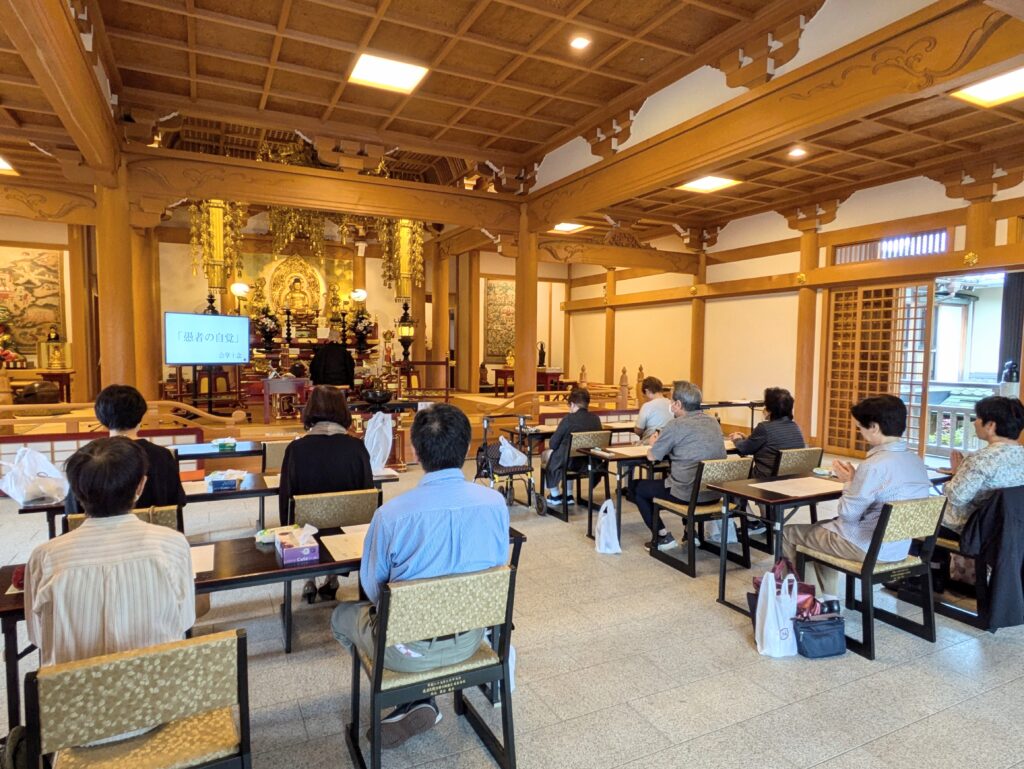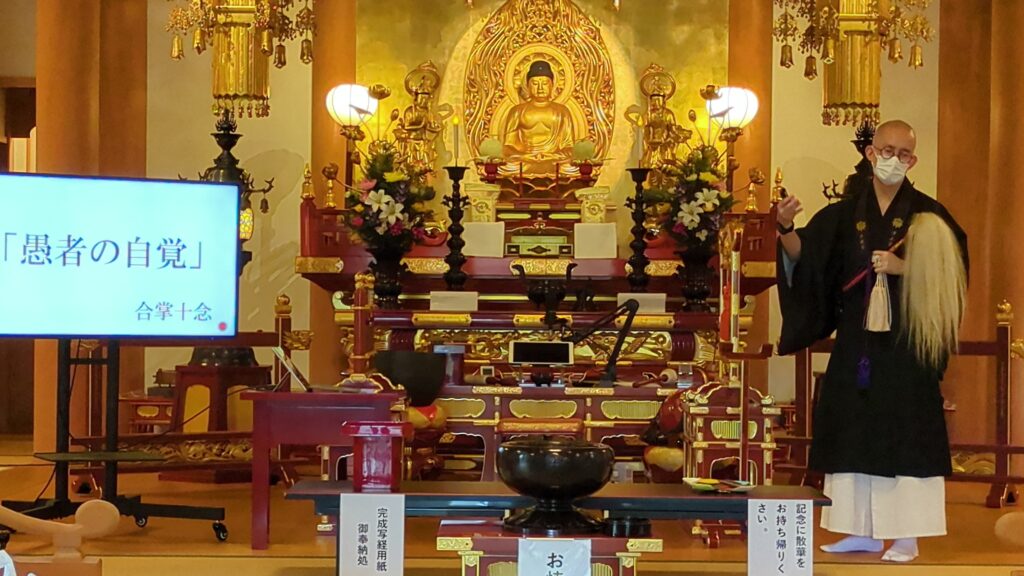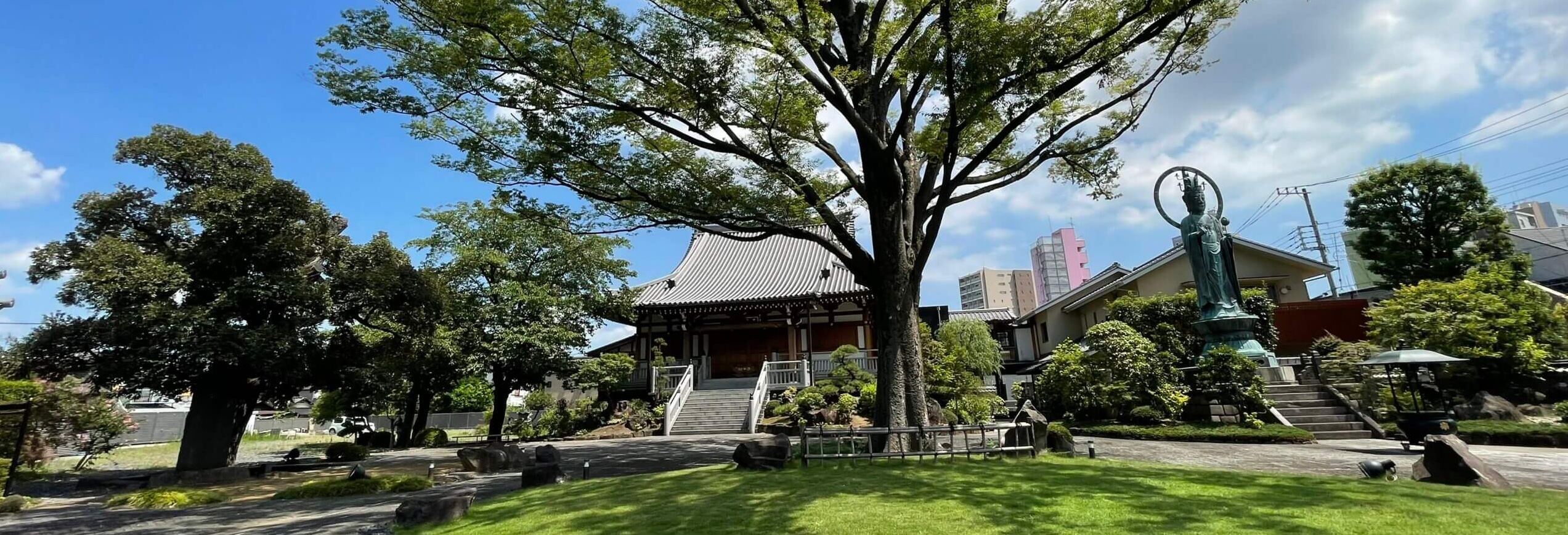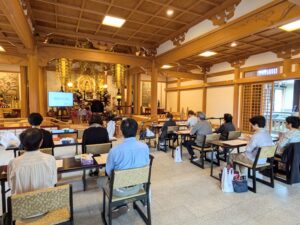title tenen
The Shokoji Temple's sutra copying class is not a calligraphy class, so the goal is not to learn to write well. The goal is to engage in introspection (self-reflection) to reaffirm the true nature of things that are necessary to make our daily lives peaceful and rich, and furthermore, to pray to the Buddha and be welcomed into the Pure Land like our beloved ancestors at the end.
Unfortunately, the September sutra copying meeting was held in bad weather, but some people still participated. Although there was a lot of chatting, we engaged in introspection and chanted the Nembutsu together.
On that day, I reaffirmed my views on "lies." I resolved to spend the month neither lying nor not lying, but being careful to be honest in every word, gesture, and action.
Well.
This month of October, let's revisit the notion of "fools and wise men."
The following passage is found in the Udanavarga (the Self-Acting Sutra/Dhammapada):
If a fool knows, "I am a fool," he is wise

Like good and evil, wisdom and foolishness are matters of degree and are relative, so to someone with an academic grade of 50, someone with a grade of 70 would be "wise," and to someone with a grade of 90, someone would be "foolish."
Furthermore, what constitutes wise or foolish belongs not to the action or thought in question, but to the person who recognizes it, so if someone chooses between a shortcut with poor security and a longer, safer path, they will be judged as either "wise" or "foolish" depending on the values of the person who recognizes and the subsequent results.
Even if a subject is recognized by many people as "smart" or "stupid," it does not necessarily mean that the subject is completely "smart" or "stupid." For example, an elite sales person may be "smart" in sales, but "stupid" in administrative skills.
What is important is not the evaluation of wisdom and ignorance by others, nor is it the wisdom and ignorance that one understands by comparing oneself to others, but simply whether one can correctly observe oneself. What one can and cannot do, and to what extent one can do what one can. When one can correctly determine that there are areas in which one is lacking, then one is truly a wise person.
But unfortunately, it is not enough to be able to see clearly once. Because even if you are able to see clearly once, you will forget about it because you are busy. Because you will not be able to see clearly again because you become complacent. Because as soon as your thoughts are wavering, you will compare yourself with others. Because it is difficult to continue without worrying about the evaluations of others.
I too am struggling with the difficulty of remaining wise through forgetfulness, complacency, and the opinions of others, in other words, the difficulty of approaching things from the starting point of my own stupidity.
So, let's reaffirm the wisdom of "awareness of being a fool" and spend the next month with that in mind. Continuing to act with this mindset will surely make your life even richer, little by little.
With this determination in mind, the prayer I wrote in my copy of the sutra is:
"Awareness of the Fool"
Let us write this, reflect calmly, and chant the Nembutsu.

Namu Amida Butsu


